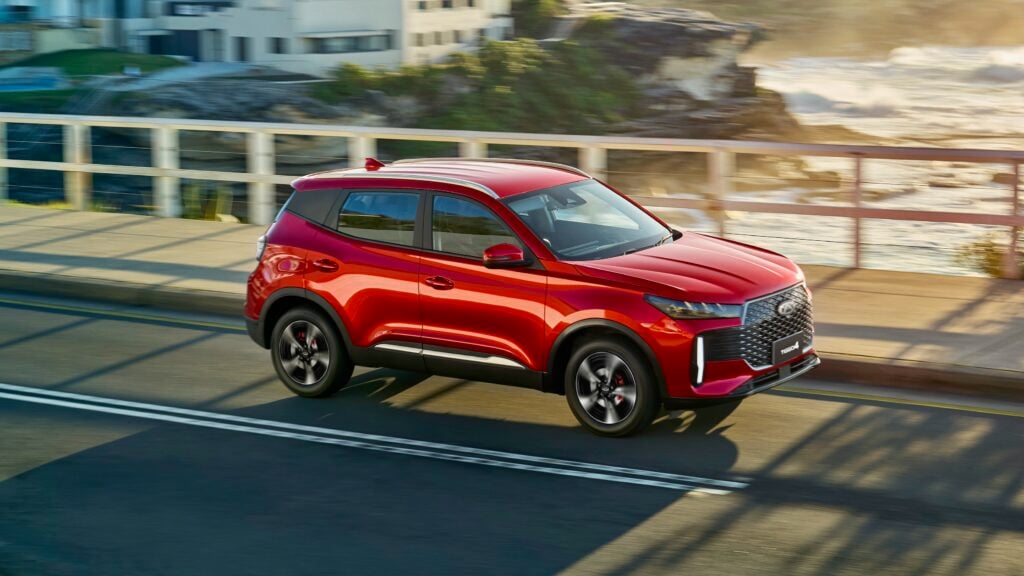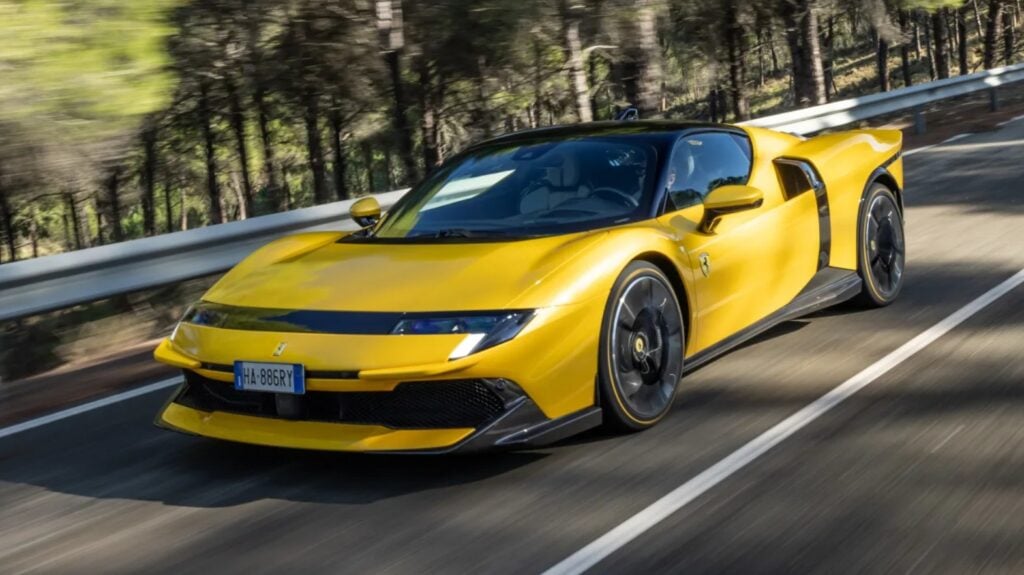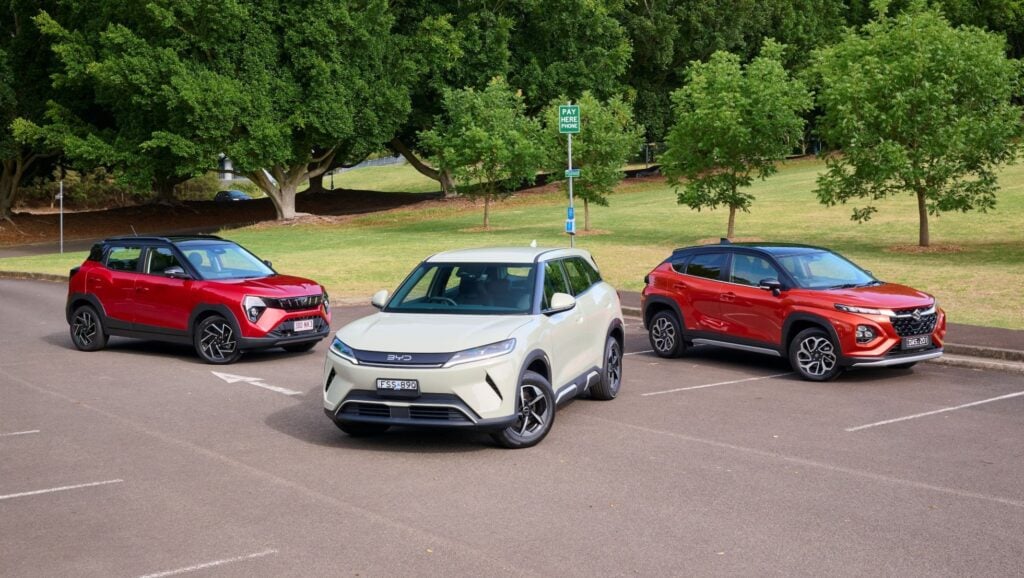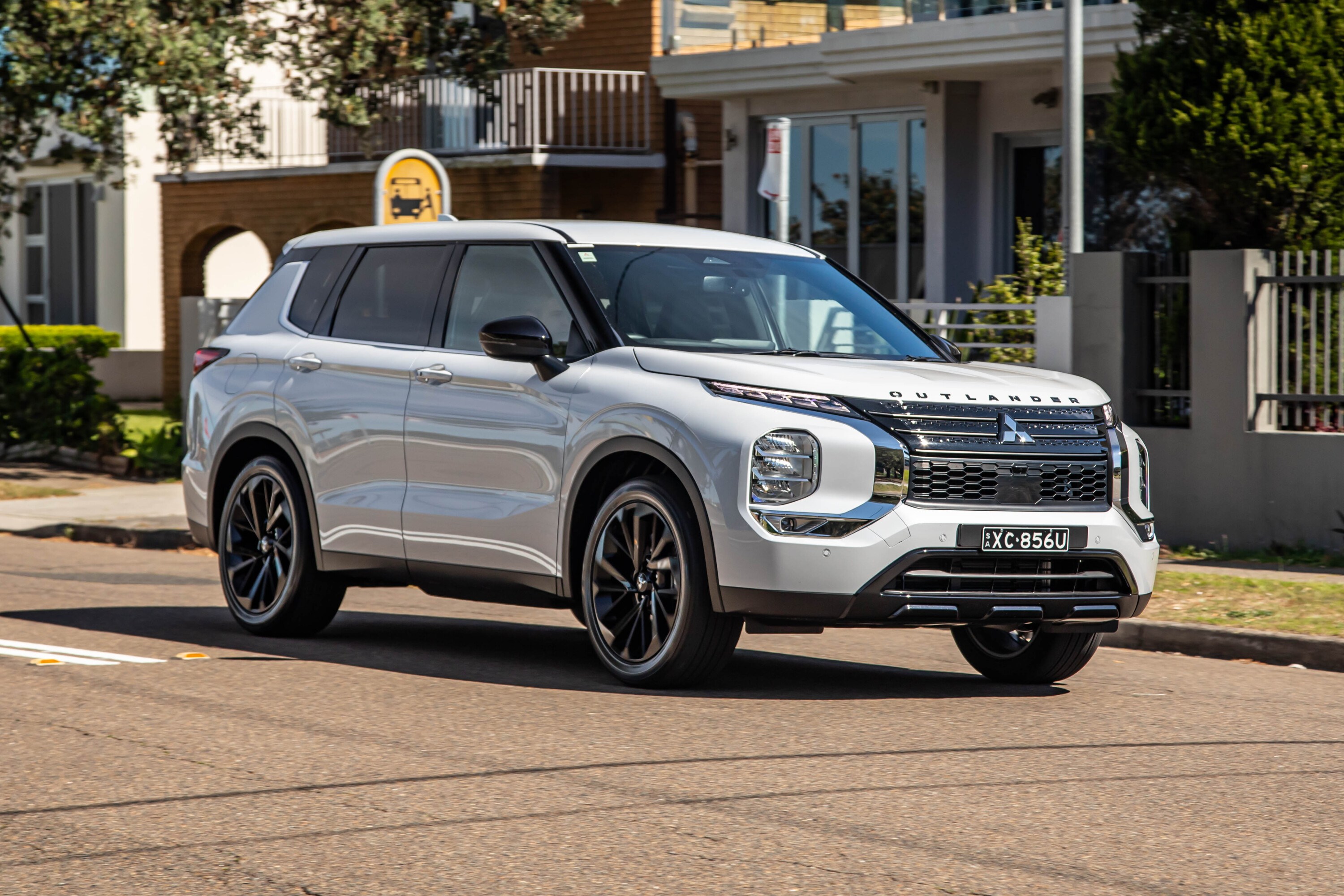
Score breakdown
Things we like
- Black pack looks good
- Comfortable ride and handling
- Lots of space
Not so much
- Plasticky interior
- Super-tight third row
- Ride suffers on the big wheels
“So where did you land?” I asked a friend when he said he’d put an order on a car.
He knows me well and we’d been talking about a decent-sized SUV for him and his family for months. “Mitsubishi Outlander,” he almost muttered behind his hand. I congratulated him – he thought I’d shout at him, but we had spoken about the now familiar current-generation machine. It was a good choice, I assured him.
The times are gone where it was a “well it’s cheap” choice and now it’s competitive rather than bargain basement. So competitive that customers are asking the Japanese company for a bit of variety in its line-up on the styling front, which it has duly delivered in the form of the LS Black Edition.
JUMP AHEAD
- How much is it, and what do you get?
- How do rivals compare on value?
- Interior comfort, space and storage
- What is it like to drive?
- How is it on fuel?
- How safe is it?
- Warranty and running costs
- VERDICT
- Specifications
How much is it, and what do you get?
The Black Edition kicks off at $42,490 before on-road costs and is based on the second step in the Outlander range, the LS.
It’s a front-wheel drive seven-seater, so promises pretty decent bang for your buck before you even get going.
| 2024 Mitsubishi Outlander LS Black Edition standard features | |
|---|---|
| 20-inch alloy wheels | Dual-zone climate control |
| 9.0-inch touchscreen | Second-row air vents |
| Wireless Apple CarPlay | Wired Android Auto |
| Reversing camera | Cloth upholstery |
| Front and rear parking sensors | Heated folding side mirrors |
| Keyless entry and start | Auto LED headlights |
| Auto wipers | Leather wheels nad shifter |
| Space-saver spare | Blacked out grille, centre console, mirrors and bumper parts |
| Satellite navigation | Wireless phone charger |
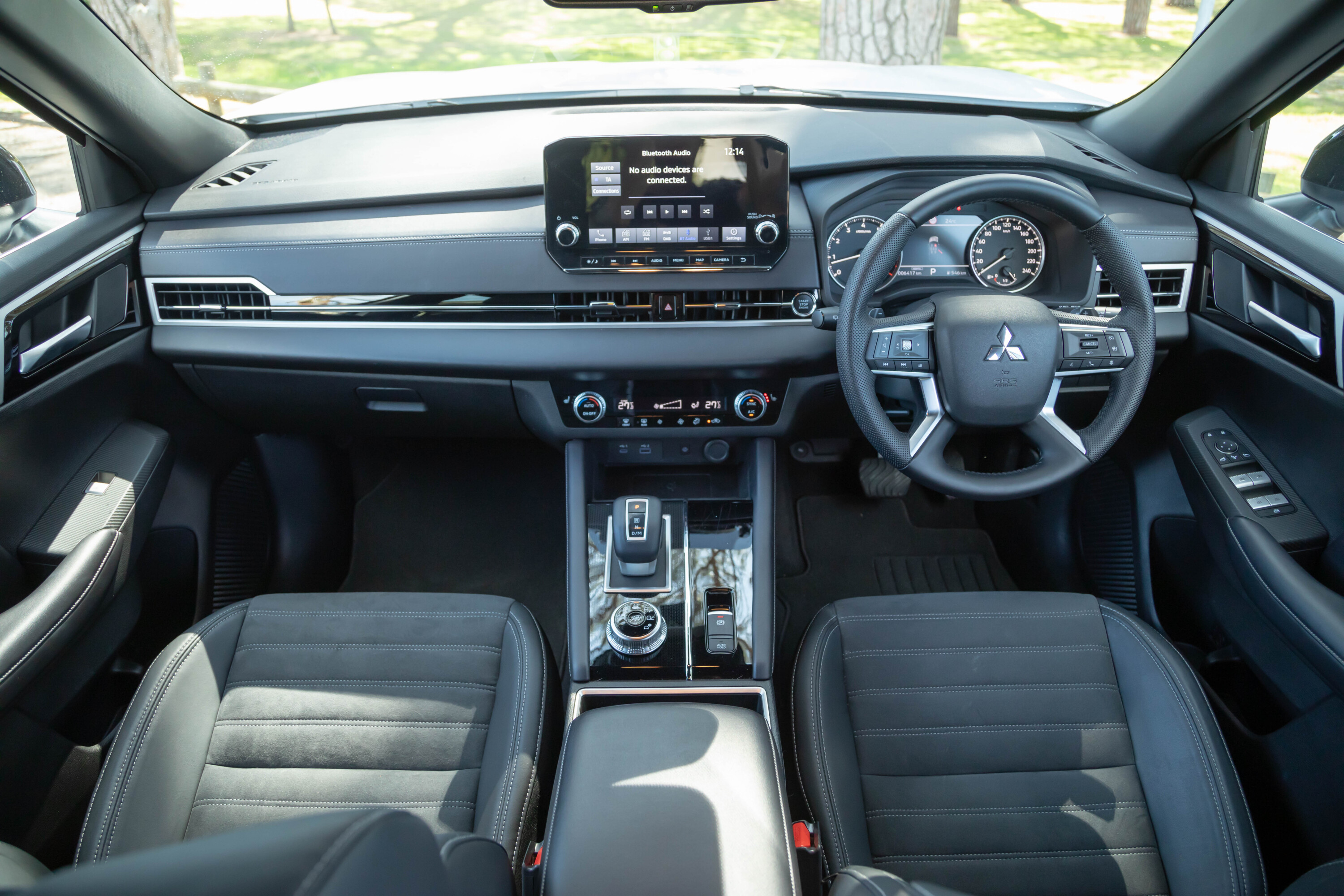
The LS picks up wireless Apple CarPlay and the larger touchscreen – making the wireless charger useful for around half of us – while the Black Edition drops the roof rails for a black roof, free metallic paint and bigger, black-painted alloy wheels. It’s a lot of car for the money.
You also get third-row seating (the Outlander isn’t a true seven-seater but a 5+2), which means the full-size spare is swapped for a space-saver.
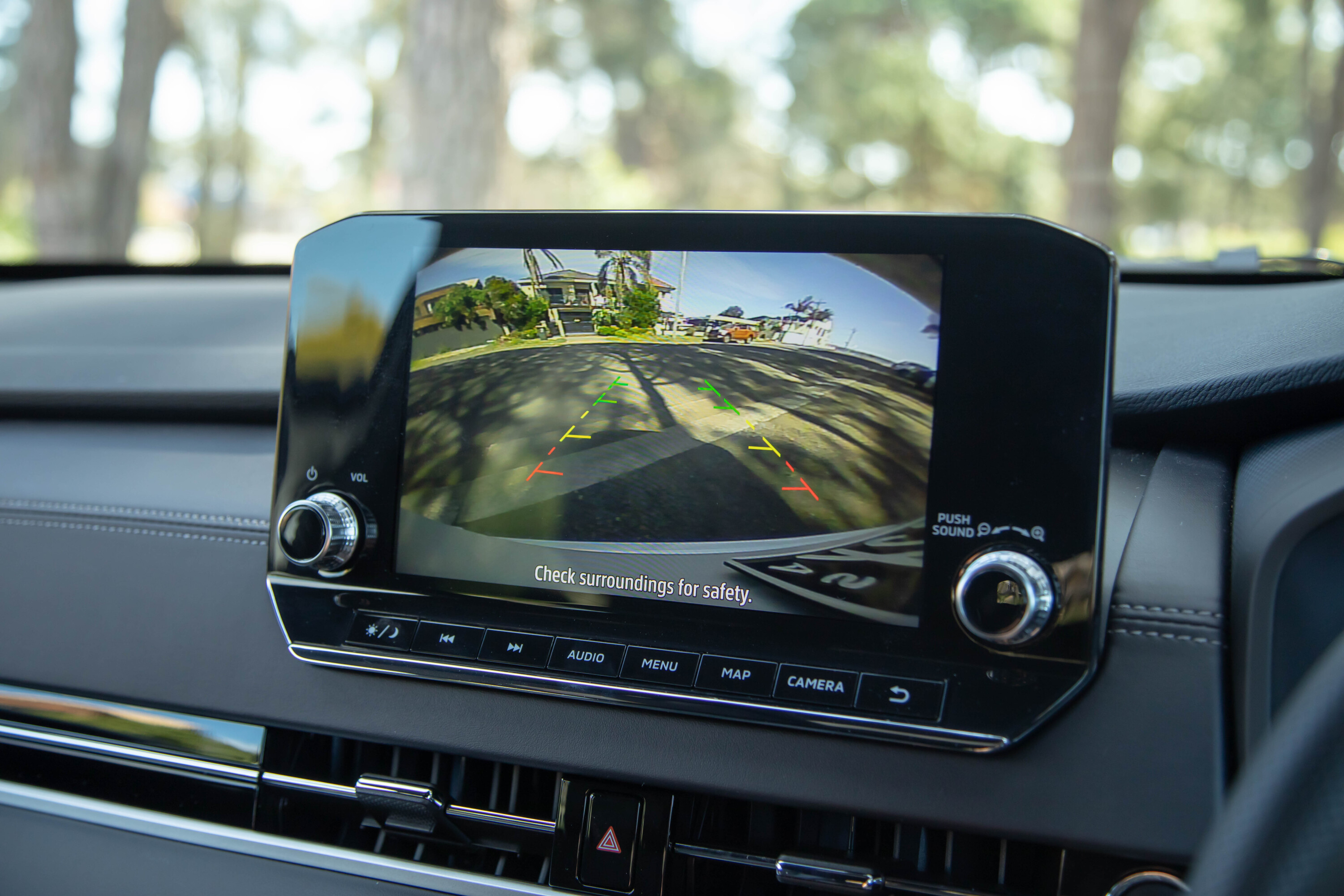
How do rivals compare on value?
The Outlander belongs to the medium SUV segment but its physical size verges on the next segment up.
A couple of other contenders match that description. The first and most obvious is the Nissan X-Trail which is based on the same platform and shares the same engine and transmission. It’s a nicer – but more expensive – car, with a more comfortable attitude to its ride and an even better interior.
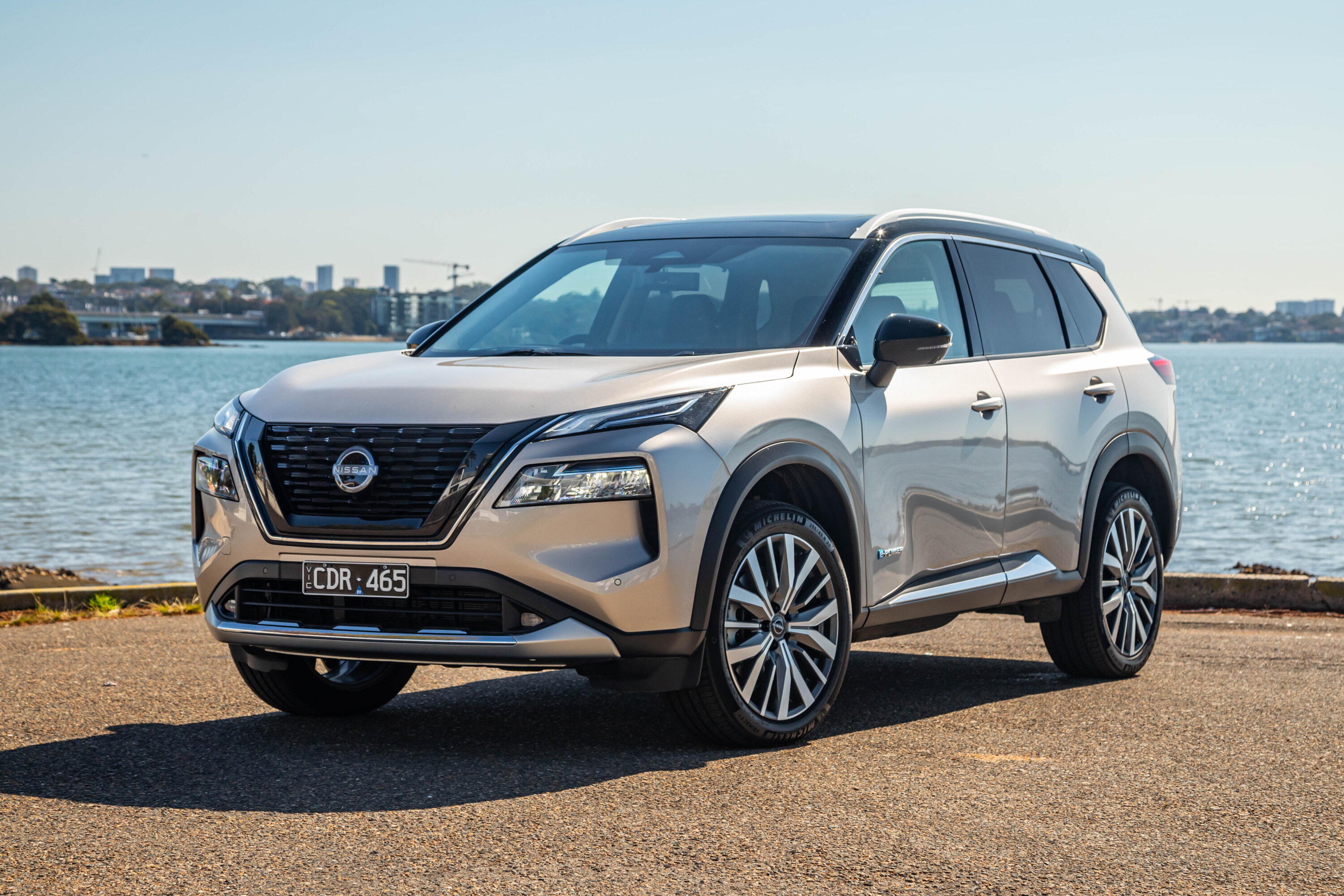
There are even little tricks like wider-opening rear doors that make it that little bit easier to live with. Servicing is more expensive than the Outlander, however, and it doesn’t have a 10-year warranty.
A Volkswagen Tiguan Allspace fits in well here too. It is also more expensive than the Outlander and the front-wheel drive 110TSI – while my pick – is a bit sparsely appointed compared to the Outlander. It’s also slightly costlier to service and doesn’t have a long warranty either.
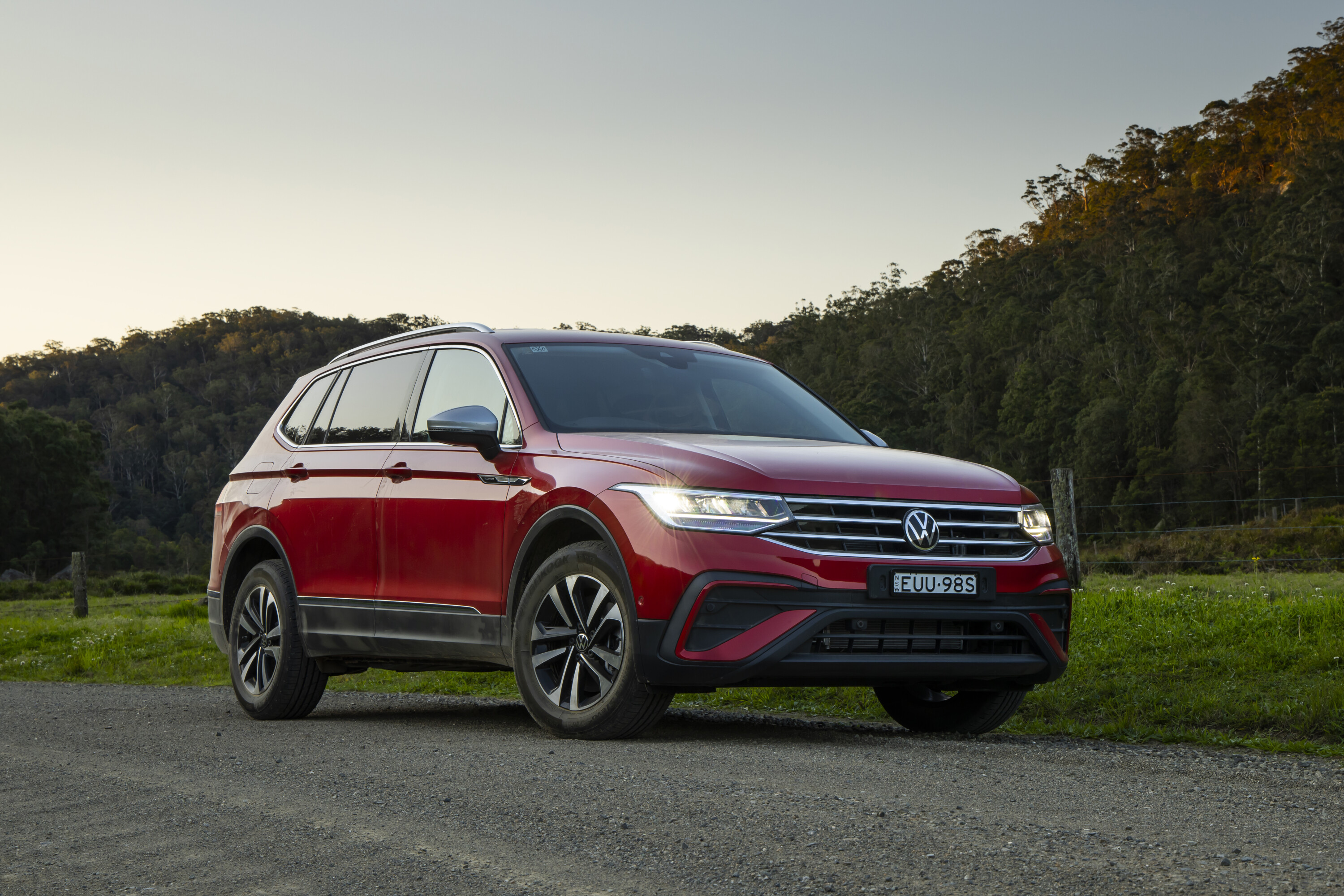
Interior comfort, space and storage
One of the main reasons the Outlander is a good choice is the vast interior space afforded by its growth in size.
The middle row is expansive in all directions and one of the reasons the LS is a decent idea for families is that the sunroof doesn’t make teenagers miserable (upper versions lose a lot of headroom to the glass roof, so best avoided if you have taller folks to carry around).
You get rear air vents, bottle holders in the doors and cup holders in the fold-down armrest. The third row is really just a pair of folding jump seats, which are a bit of a Lego challenge.
To ensure the third-row seats can fully fold, their long narrow headrests are stored separately under the boot floor in an admittedly very sensible packing spot that means they won’t roll around. The seatbacks are short and you’re relying on the middle row’s sliding ability to fit anyone human-sized in.
Every direction is marginal for anyone really and the windows are tiny. I’m not certain of the point of these seats but at least Mitsubishi is honest in calling the Outlander a 5+2.
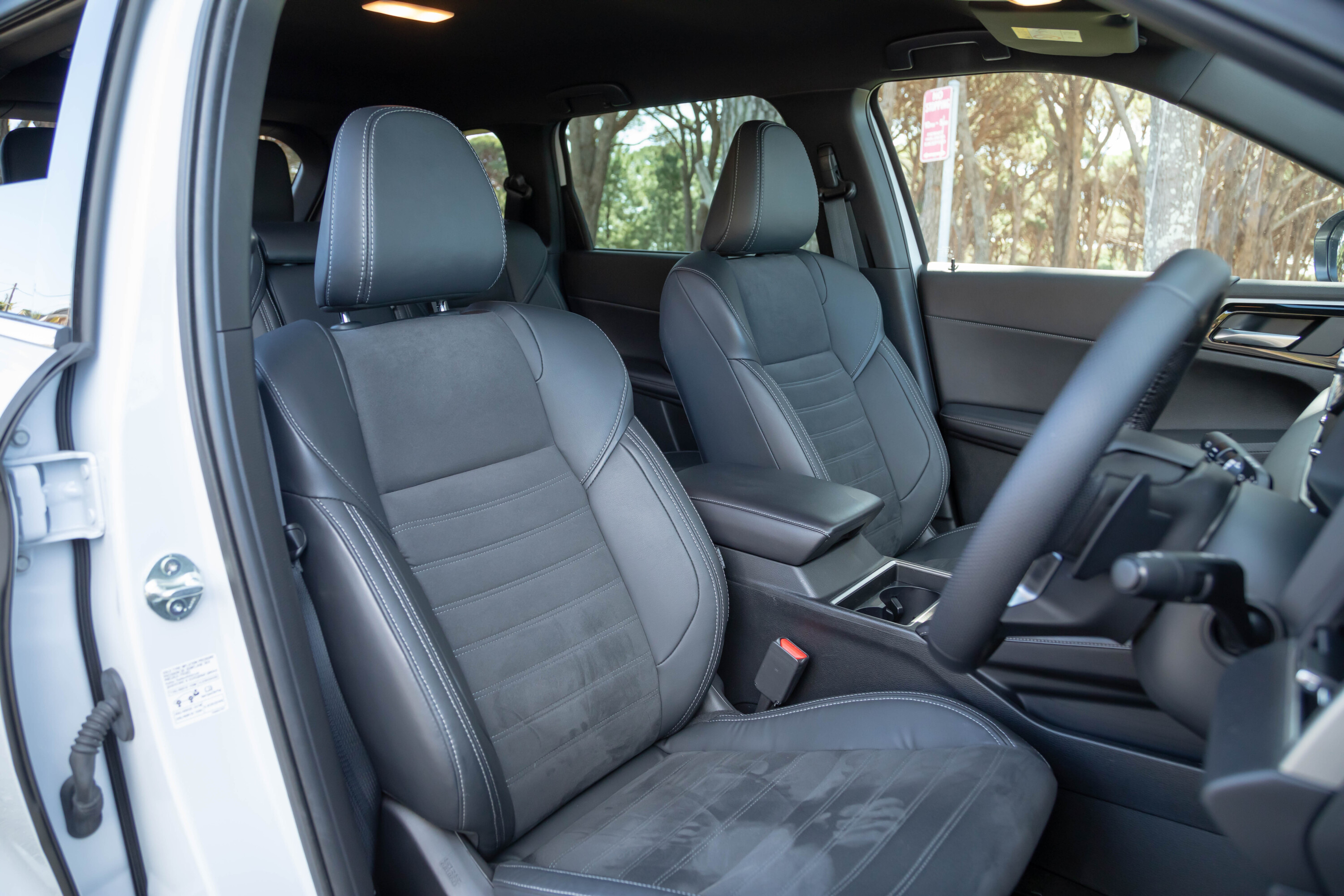
Maximum boot space with the rear row folded is 478 litres, rising to 1466 with the middle row also out of the way. With all three rows in play, the boot is a 163L proposition, which is okay, but will only hold a few bags of shopping or a pile of beach towels or whatever.
Up front, you have a comfortable pair of manually adjusted seats with a quite fetching mix of fake leather and fake suede, neither of which are objectionable. I actually quite like this mix because the seats hold you in and don’t get too hot but seem easily cleaned.
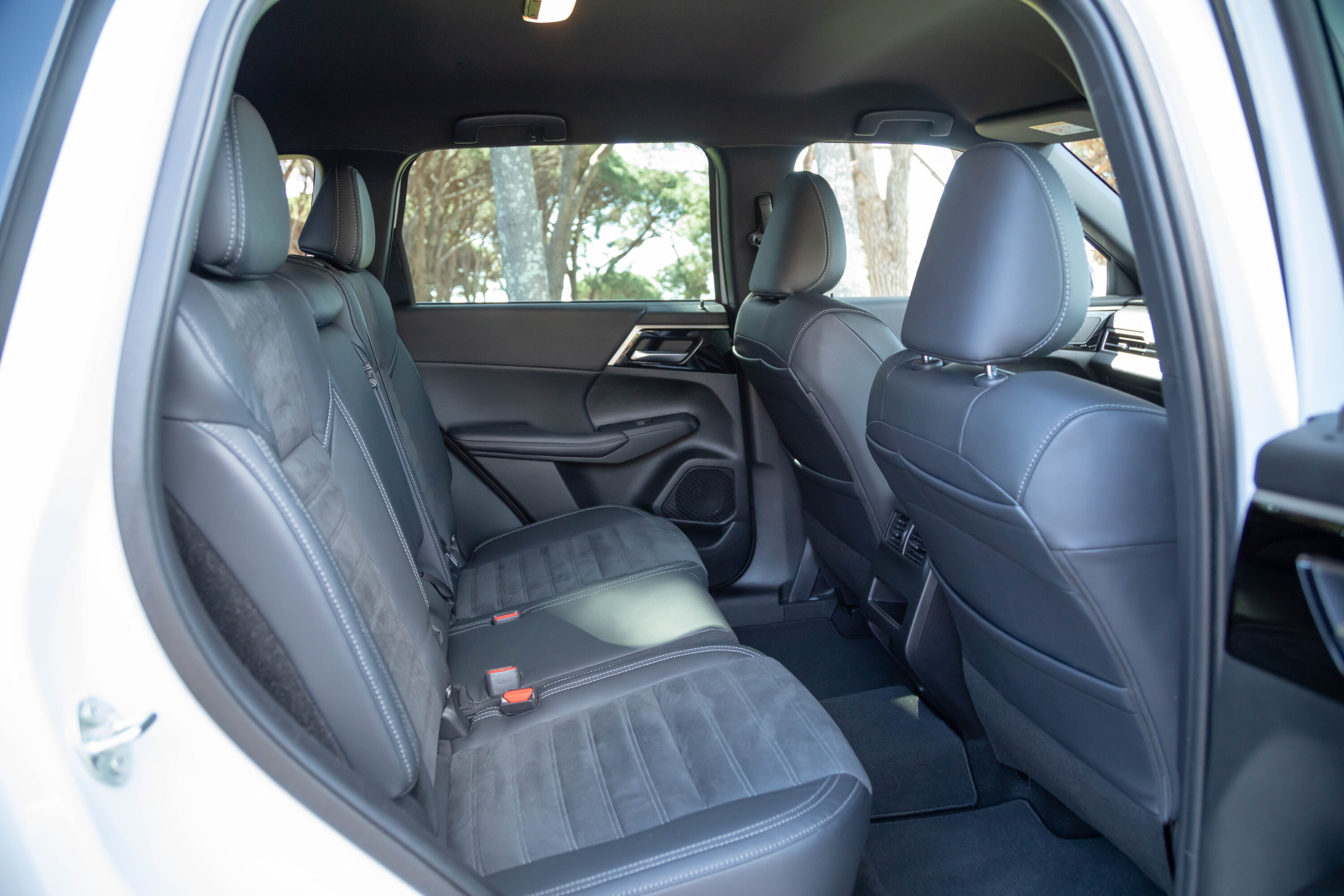
There’s a big wireless charging pad for your phone plus USB slots, a console bin and two cup holders. The door bins also hold a bottle each. It’s very spacious and the view out is excellent.
Here in the cheaper seats it’s a fairly blandly coloured cabin but has all the things that make this a good interior – it’s hardy and well made and only the slightly chintzy volume knob is a misstep.
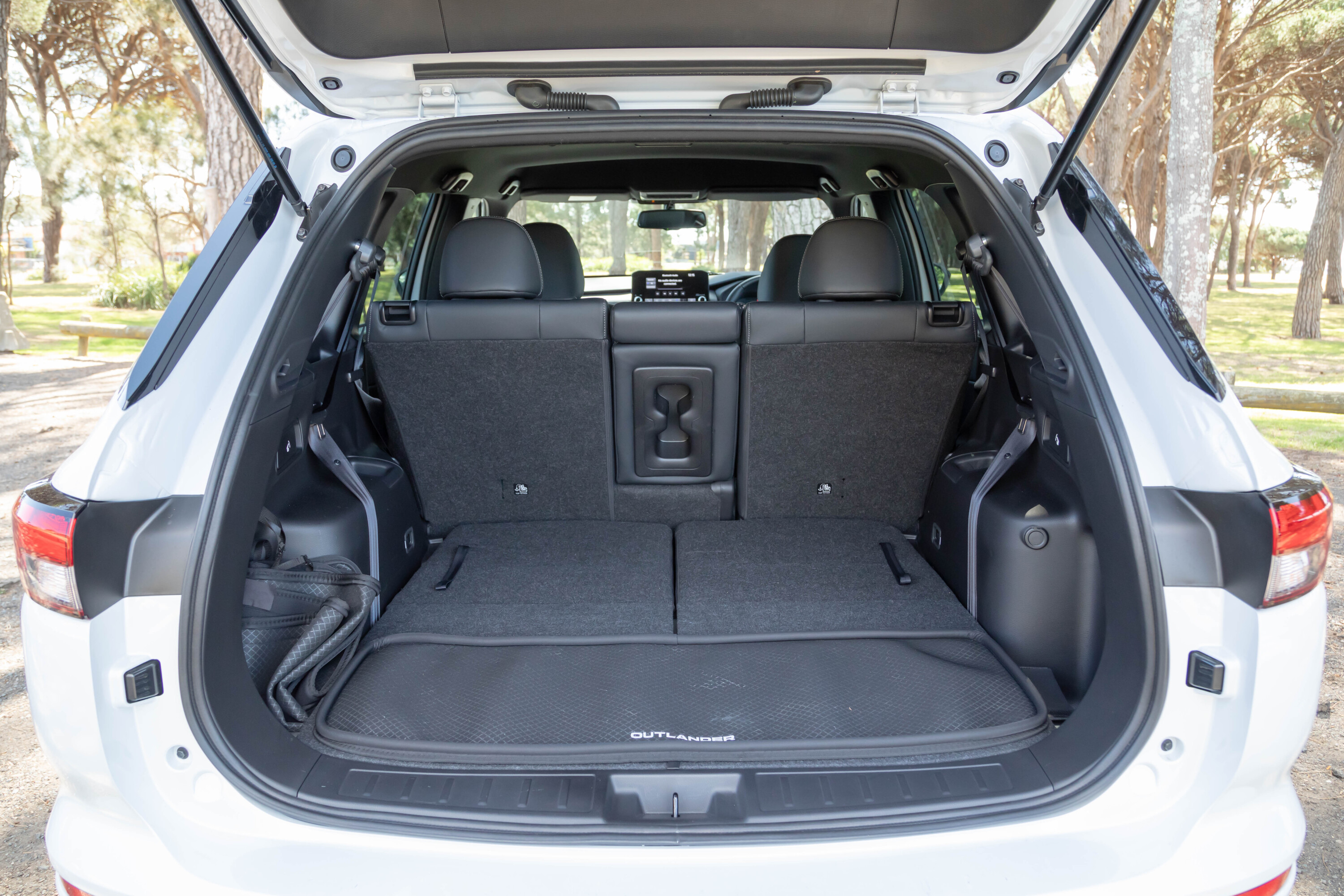
What is it like to drive?
Another major thing about the Outlander is that it’s actually quite nice to drive.
There aren’t really any duds in this segment, but the Outlander’s ride and handling balance is mostly very impressive. It can get a bit niggly on poor urban surfaces and isn’t a big fan of concrete roads, but I think the blame for both of these shortcomings can be sheeted home to the 20-inch alloys of the Black Edition as the regular LS’s 18s are a bit more comfortable and a bit quieter.
| 2024 Mitsubishi Outlander LS Black Edition drivetrain | |
|---|---|
| Drive | front-wheel |
| Engine | 2.5-litre naturally-aspirated four-cylinder |
| Transmission | continuously variable |
| Power | 135kW @ 6000rpm |
| Torque | 245Nm @ 3600rpm |
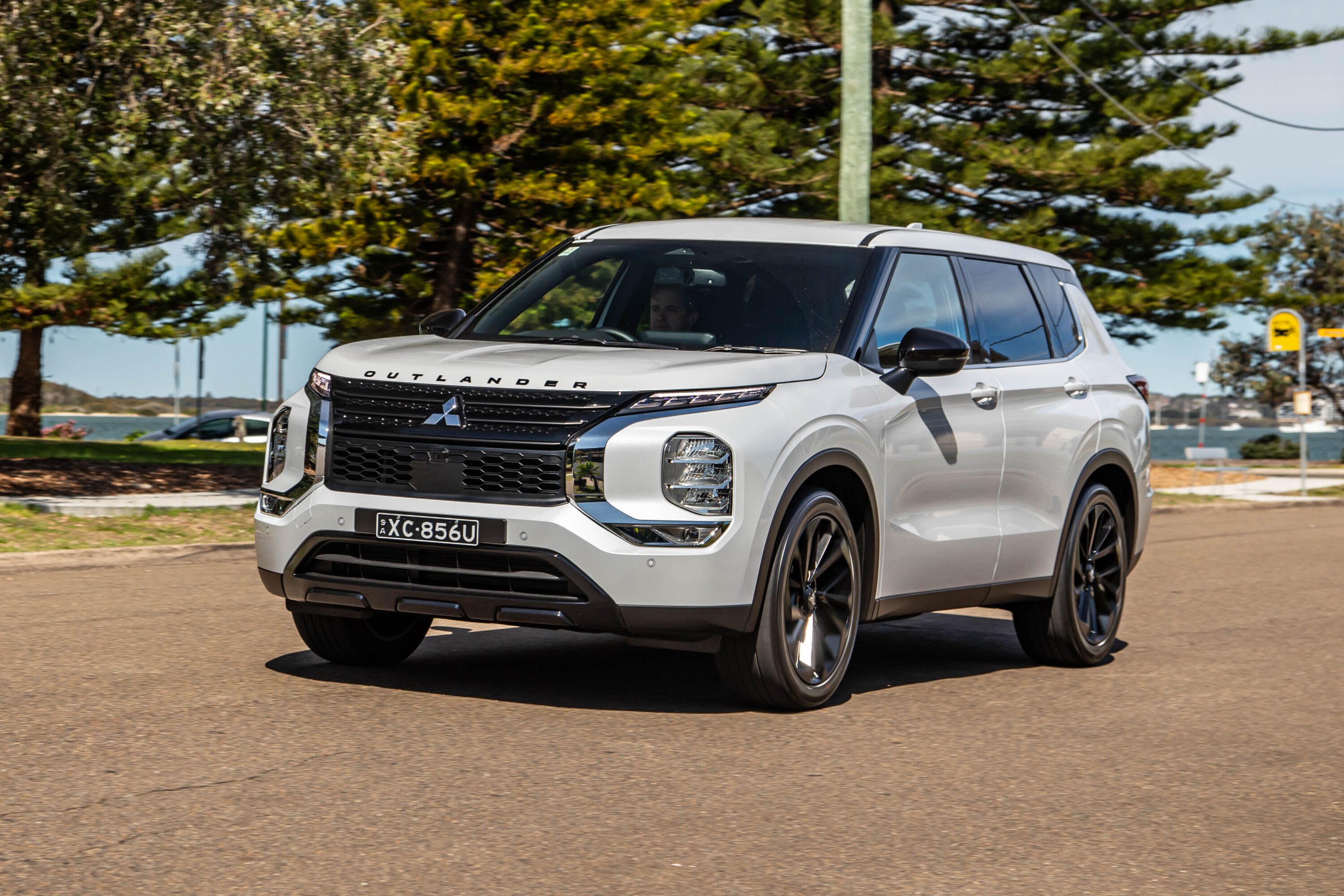
It’s not what you’d call powerful, however. The 2.5-litre four-cylinder petrol spins up 135kW which is okay but 245Nm isn’t a lot more than you find in many compact SUVs.
Driving the front wheels through a continuously variable transmission (CVT), it actually does alright because that type of transmission is pretty good at extracting the most out of modest torque outputs and in fact almost revels in it.
Throwing more torque at a CVT is usually a recipe for flaring and droning, both of which the Outlander is mostly immune to. As CVTs get better I have to leave behind my formerly well-founded prejudice against them.
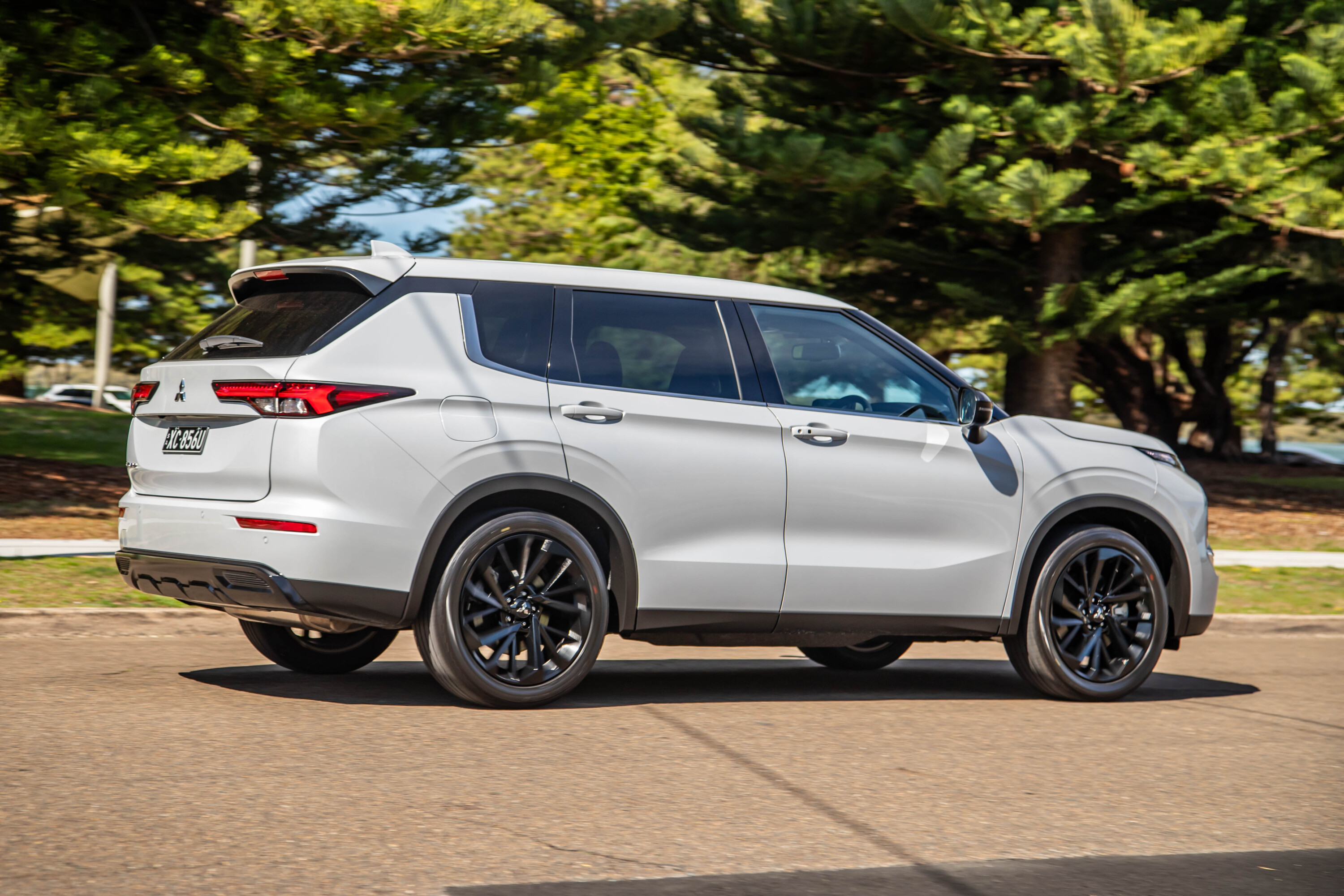
It’s a good car to drive over long distances, too, with a cabin that settles down into a pretty quiet sort of place.
The steering and brakes also work really well together, with sensible weight in the former and a positive feel to the latter. While the engine might struggle a little with a fully loaded car on top of a nearly 1800kg kerb weight, the brakes are more than up to the job.
If any of the terms in this section have left you scratching your head, these articles will help bring you up to speed!
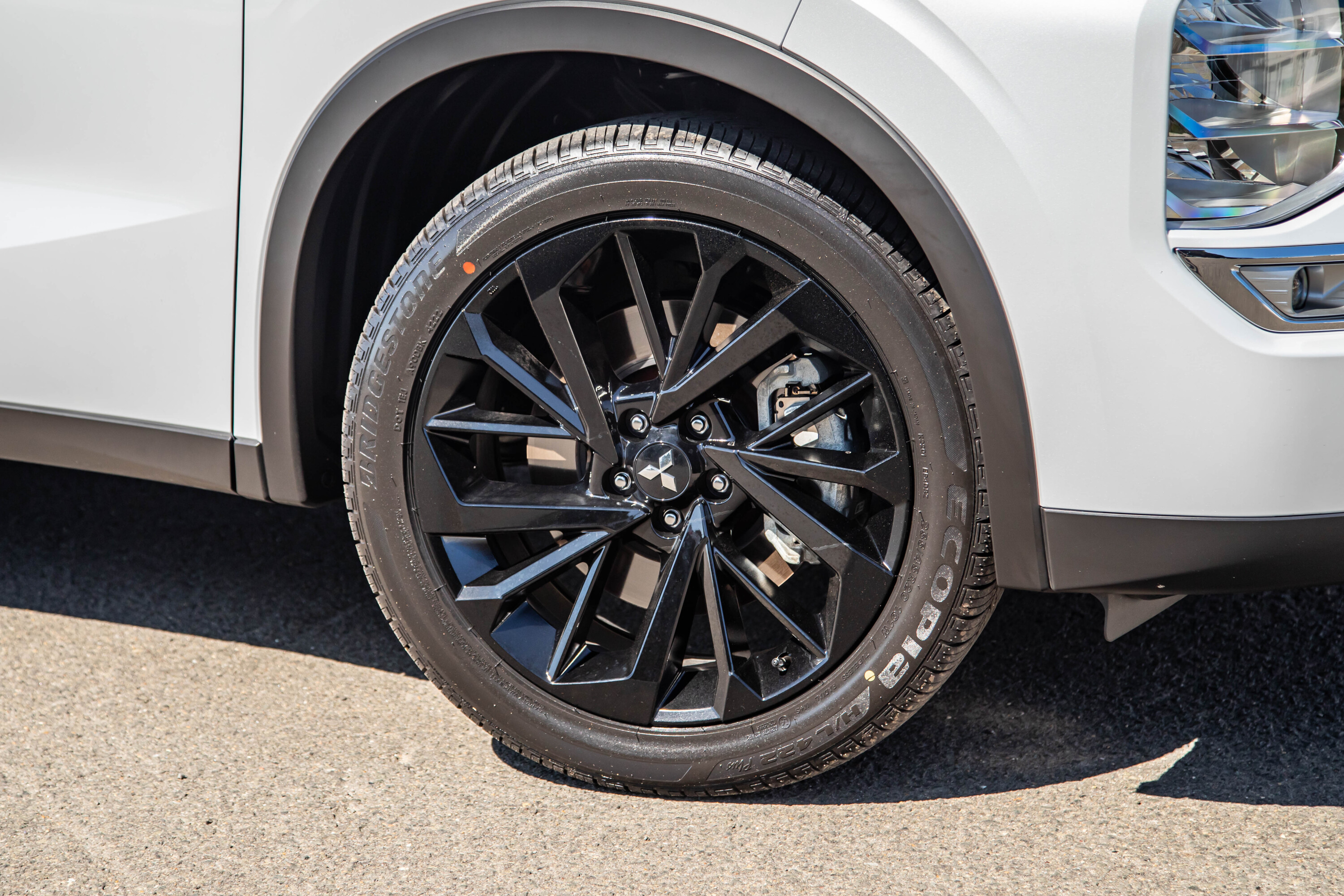
- What is a Powertrain or Drivetrain?
- Power vs torque
- Car suspension explained
- Automatic transmissions (‘gearboxes’) explained
- Chassis control systems explained
- Car vs Ute vs SUV: How the vehicle you buy should guide the way you drive
Mitsubishi claimed 7.7L/100km on the combined cycle, which I initially thought was a bit brave.
| 2024 Mitsubishi Outlander LS Black Edition fuel economy | |
|---|---|
| Claimed fuel consumption | 7.7L/100km |
| On test (indicated) | 8.3L/100km |
| Fuel tank | 55 litres |
| Real world range | 662km |
| Fuel type | 91 RON |
That 8.3L/100km on-test figure is not a bad result for such a big fella and it’s not the first time I’ve got a low-eight result on a petrol Outlander. It would be nicer if the tank was a bit larger, but given the vast majority of these will never/rarely leave the city, it’s probably not a big deal.
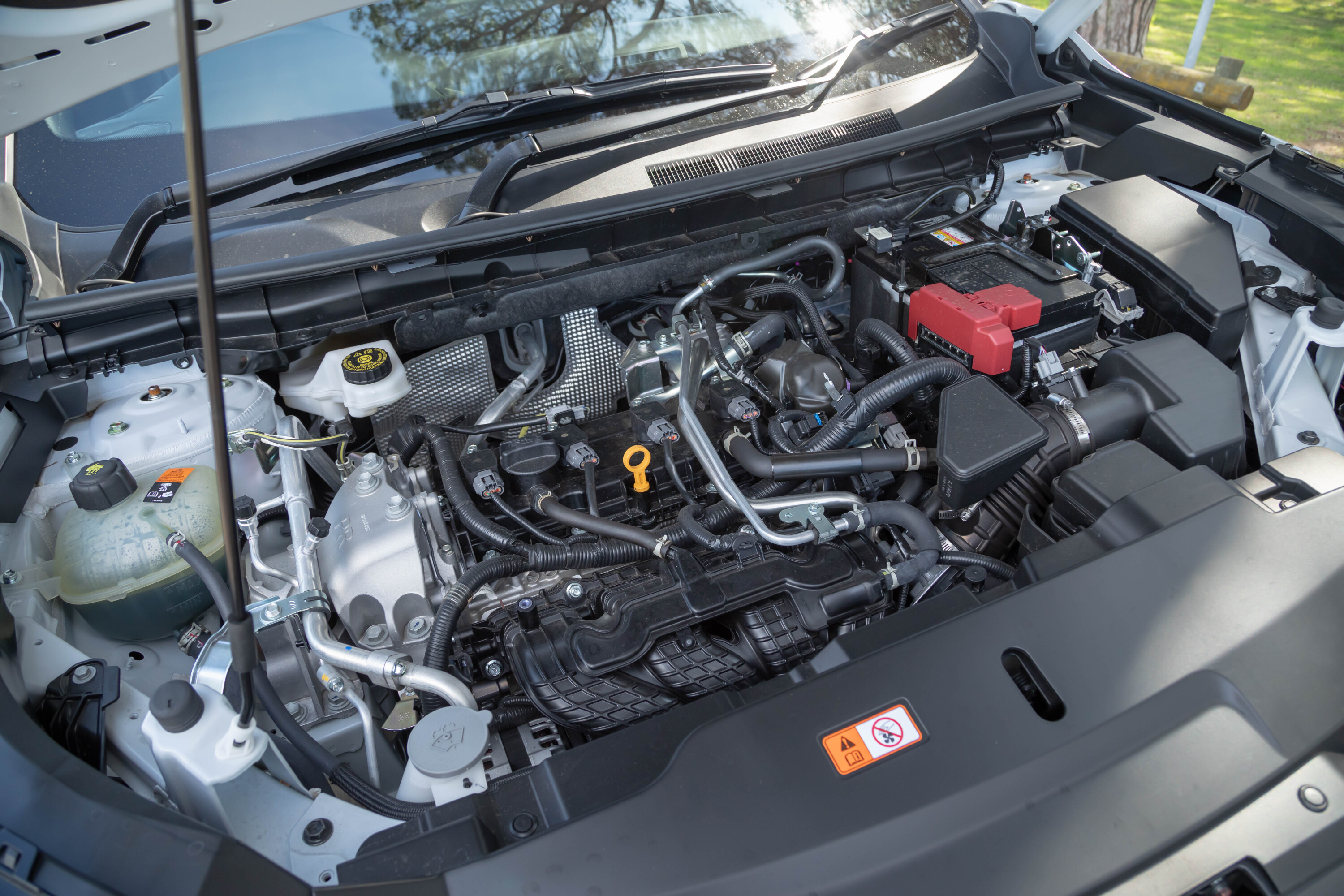
How safe is it?
The current-generation Outlander scored a five-star ANCAP safety rating in 2022, which will expire in 2028.
| 2024 Mitsubishi Outlander LS Black Edition safety features | |
|---|---|
| 8 airbags | ABS and stability controls |
| Rear cross-traffic alert | Lane departure warning |
| Lane-keep assist | Forward AEB with pedestrian and cyclist detection |
| Driver attention detection | Traffic sign recognition |
| Forward collision warning | Reverse AEB |
The airbag count includes a driver’s knee airbag and a front-centre airbag that deploys between passengers when the system thinks you might clash heads.
In the second row are two sets of ISOFIX points and three top-tether anchors. The third row does not have top-tether anchors, nor do the curtain airbags reach that far back.
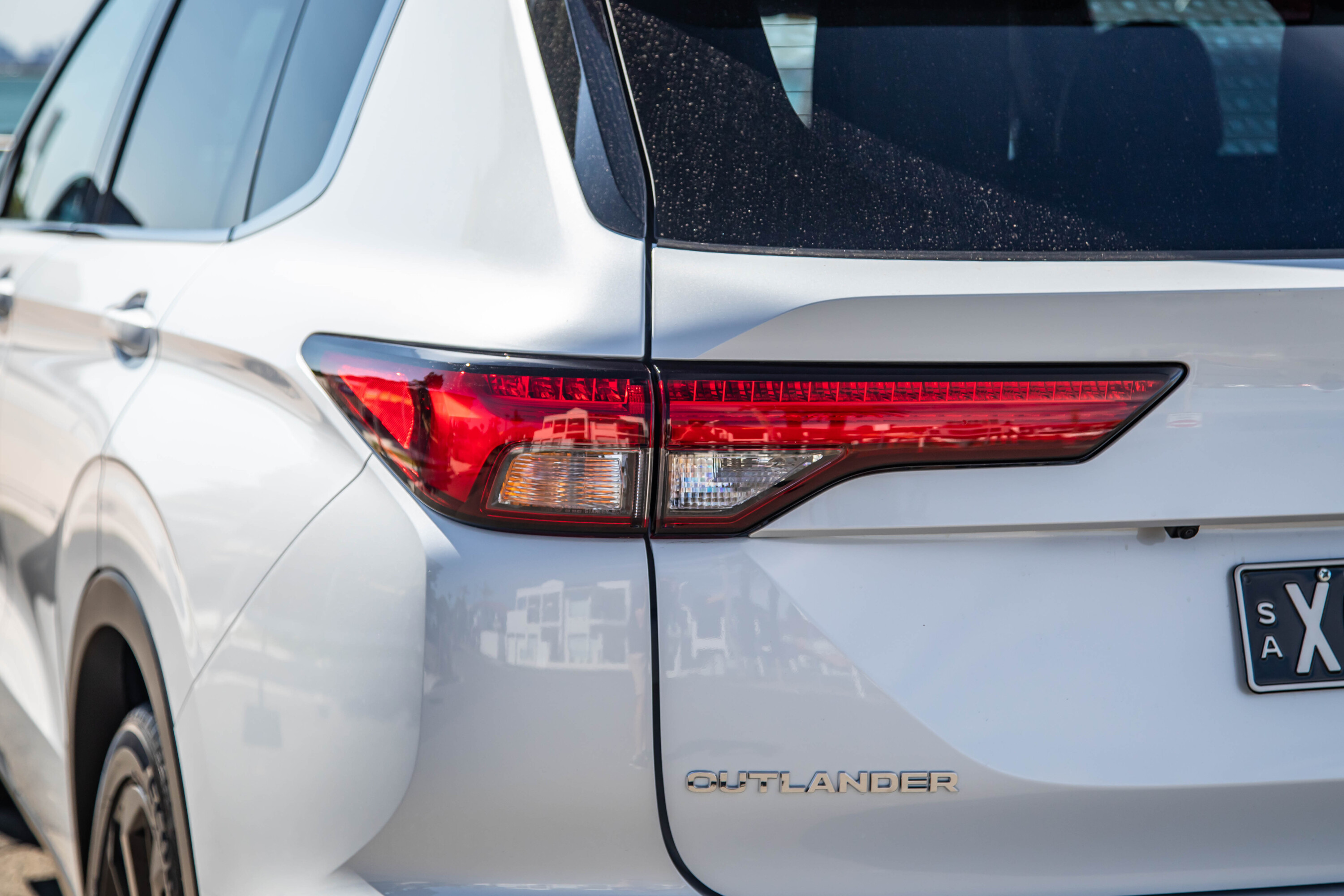
Warranty and running costs
Mitsubishi offers the longest new-vehicle warranty in Australia, a 10-year/200,000km affair that reverts to five years/100,000km if you break any of the conditions.
One condition of the warranty is that you keep servicing at Mitsubishi. Pricing isn’t outrageous but isn’t Toyota cheap, ranging from $299 through to $849 per interval (every 12 months or 15,000km).
More of them are $299 or closer to it than $849, which is the last hurrah at service number 10. Five years of servicing will set you back $1595 while the full decade is $4340, a big jump on the yearly average of the first five years.
Also, the capped-price servicing offer lasts for 150,000km rather than the warranty’s 200,000km.
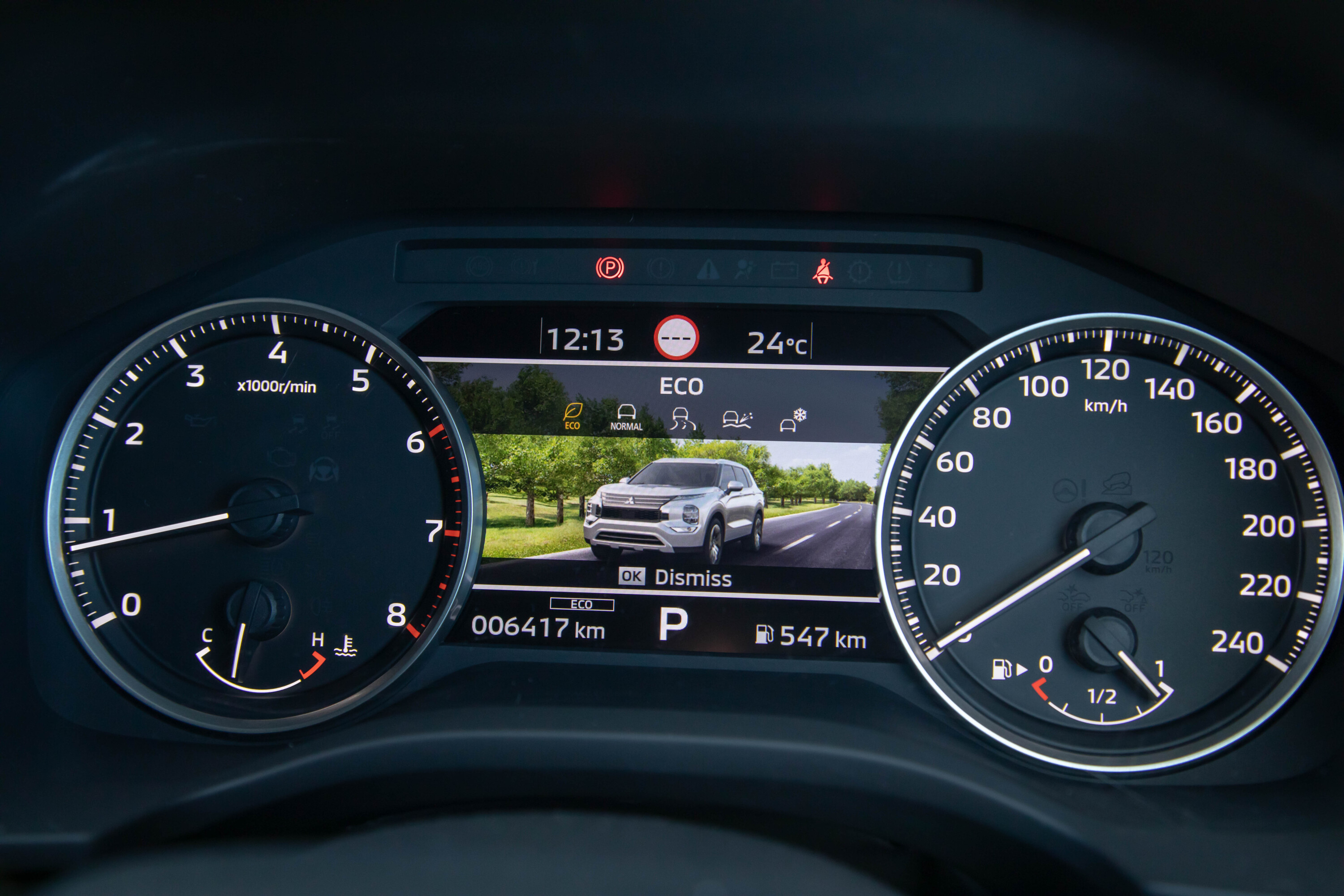
VERDICT
The Outlander LS Black Edition is just like every other Outlander – pretty good.
Whether you think an extra couple of grand is worth it for the looks and the bigger wheels for a bit of toughness is entirely up to you, but you can know that either way you’re getting a lot of car for the money.
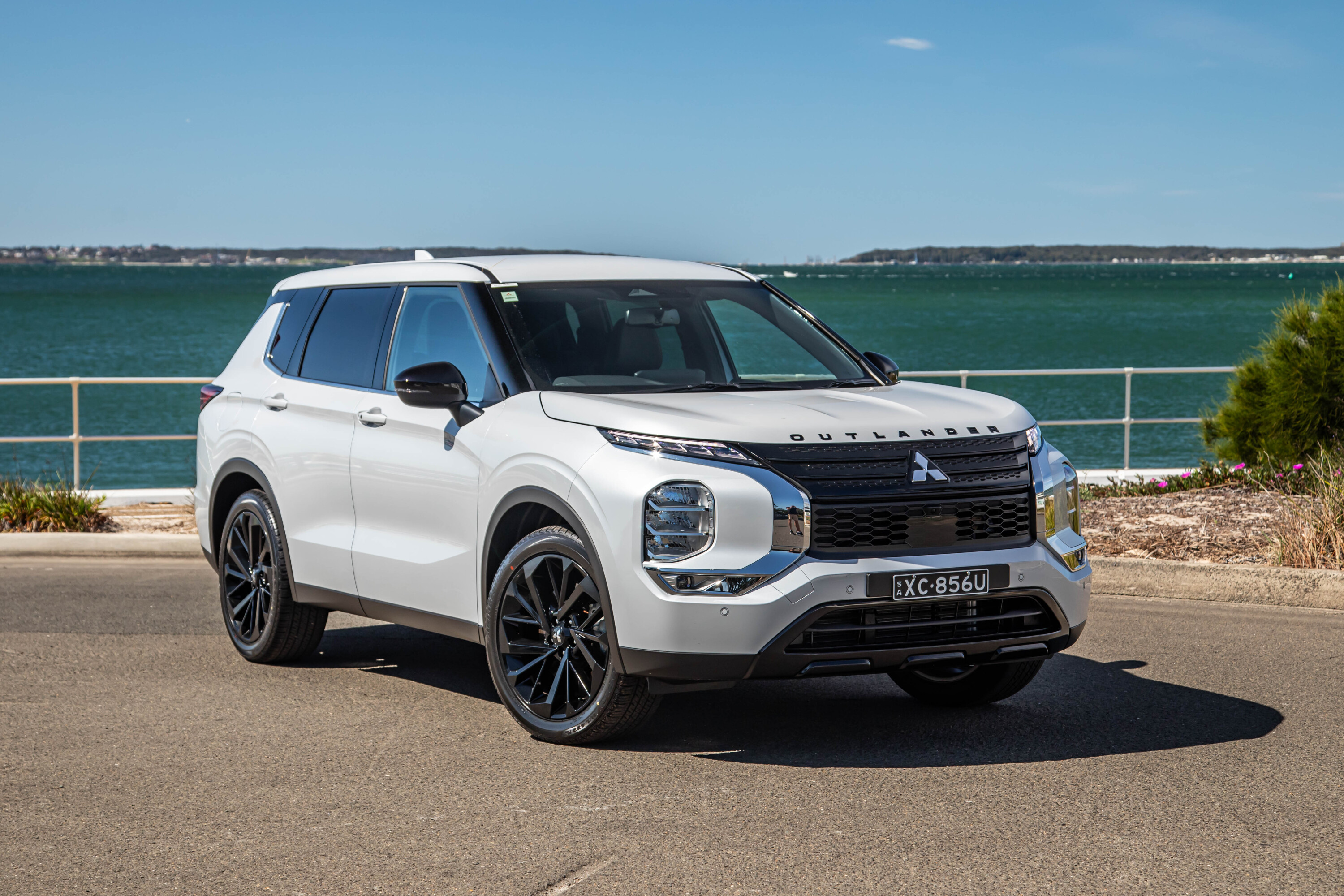
| 2024 Mitsubishi Outlander LS Black Edition specifications | |
|---|---|
| Body | 5-door, 5+2-seat medium SUV |
| Drive | front-wheel |
| Engine | 2.5-litre naturally-aspirated four-cylinder |
| Transmission | continuously variable |
| Power | 135kW @ 6000rpm |
| Torque | 245Nm @ 3600rpm |
| 0-100km/h | 10.5 secs (claimed) |
| Bore/stroke (mm) | 89 x 100.0 |
| Compression ratio | 12.0:1 |
| Fuel consumption | 7.7L/100km (claimed) |
| Front suspension | struts, coil springs, anti-roll bar |
| Rear suspension | multi-link, coil springs, anti-roll bar |
| L/W/H | 4710mm/1862mm/1745mm |
| Wheelbase | 2706mm |
| Towing | 1600kg (braked) |
| Front brakes | 350mm ventilated discs, single-piston calipers |
| Rear brakes | 330mm solid discs, single-piston calipers |
| Tyres | 255/45 R20 Bridgestone Ecopia |
| Wheels | 20-inch alloy (space-saver spare) |
| Price | $42,490 + on-road costs |
Score breakdown
Things we like
- Black pack looks good
- Comfortable ride and handling
- Lots of space
Not so much
- Plasticky interior
- Super-tight third row
- Ride suffers on the big wheels
We recommend
-
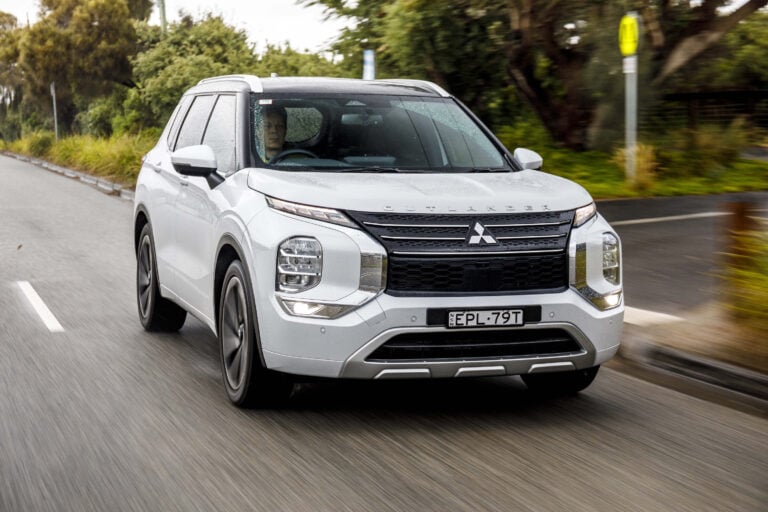 Reviews
Reviews2024 Mitsubishi Outlander review: Full range detailed
The Mitsubishi Outlander is a popular midsize SUV in Australia. Learn more about the Outlander range including price, interior, boot space, safety assists and performance.
-
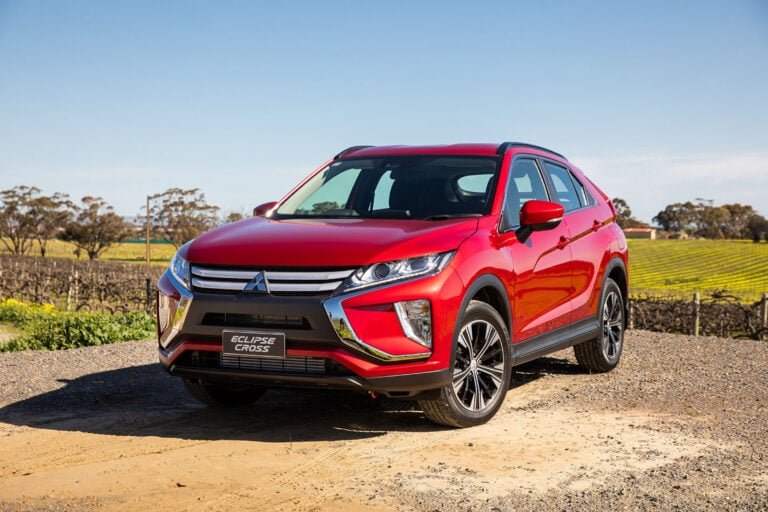 Reviews
Reviews2023 Mitsubishi Outlander ES Quick Review
The 2023 Mitsubishi Outlander ES is a budget-friendly and family-friendly option in the medium-SUV segment.
-
 News
NewsNew car calendar 2026: All the new cars coming to Australia next year
Here’s the WhichCar by Wheels guide to all the new cars that will launch in Australia in 2026. Check back in regularly for updates...


